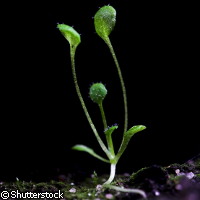How plants flower helps us understand gene control
Researchers from the UK and Poland have shed new light on how plants adapt their flowering to climate as well as on how genes are controlled. The results of the research are part of the SIROCCO ('Silencing RNAs: organisers and coordinators of complexity in eukaryotic organisms') project, which received almost EUR 12 million under the EU's Sixth Framework Programme (FP6). Additional EU support for the work came from a Marie Curie Early Stage Training Fellowship. The findings were published in the journals Science and Nature. Past studies of genome sequencing and gene expression focused primarily on the messenger RNA (ribonucleic acid) transcripts generated from genes that code for proteins. However, in addition to this so-called coding RNA, researchers have discovered that non-coding RNA is also instrumental in regulating gene activity. While our understanding of the specific roles non-coding RNA plays is low, researchers have linked it to cancer development. They also speculate that non-coding RNA may impact stem cell differentiation. Professor Caroline Dean of the John Innes Centre in the UK led a team of researchers to determine how plants control flowering in various climates. The research also helped the scientists to understand how non-coding RNA is processed and how it affects gene expression. The results of the research also demonstrate the role a plant-based model system can play in adding to our understanding of gene control. The study focused on a gene in Arabidopsis that suppresses flowering, Flowering Locus C (FLC). The researchers said that turning off this gene activates the plant's flowering and reproductive phase. The timing of this process is essential for the plant's reproductive success. The research showed that various signals interact with FLC to either maintain or release its suppression of flowering. One signal, for example, is an extended period of cold that is crucial for the flowering of a number of plants. The process is called vernalisation and it guarantees that flowering begins in positive conditions (i.e. as the cold winter ends, spring begins). The FLC research also helps researchers to improve their understanding of the complexities of gene regulation - in plants and other organisms. Non-coding RNA that covers the FLC gene plays a crucial role in silencing FLC when the cold hits. Once it has been switched off, the gene 'retains the memory' of this for the remainder of its life and stays silenced even after the cold stimulus has been removed. According to the researchers, this epigenetic memory is maintained through changes in chromatin, which is the complex combination of DNA (deoxyribonucleic acid) and protein that makes up chromosomes. Researchers have expressed a strong interest in the FLC gene and vernalisation because questions have emerged on how climate change could impact plants. Plants found in colder climates require longer vernalisation periods. Variations in the FLC gene and the different pathways that affect it have given the plants the ability to adapt to various climates. Problems may occur however when climates change quickly, which could disrupt the plants' adaption measures and may ultimately affect food supplies. The Polish Academy of Sciences also participated in the research.
Countries
Poland, United Kingdom



